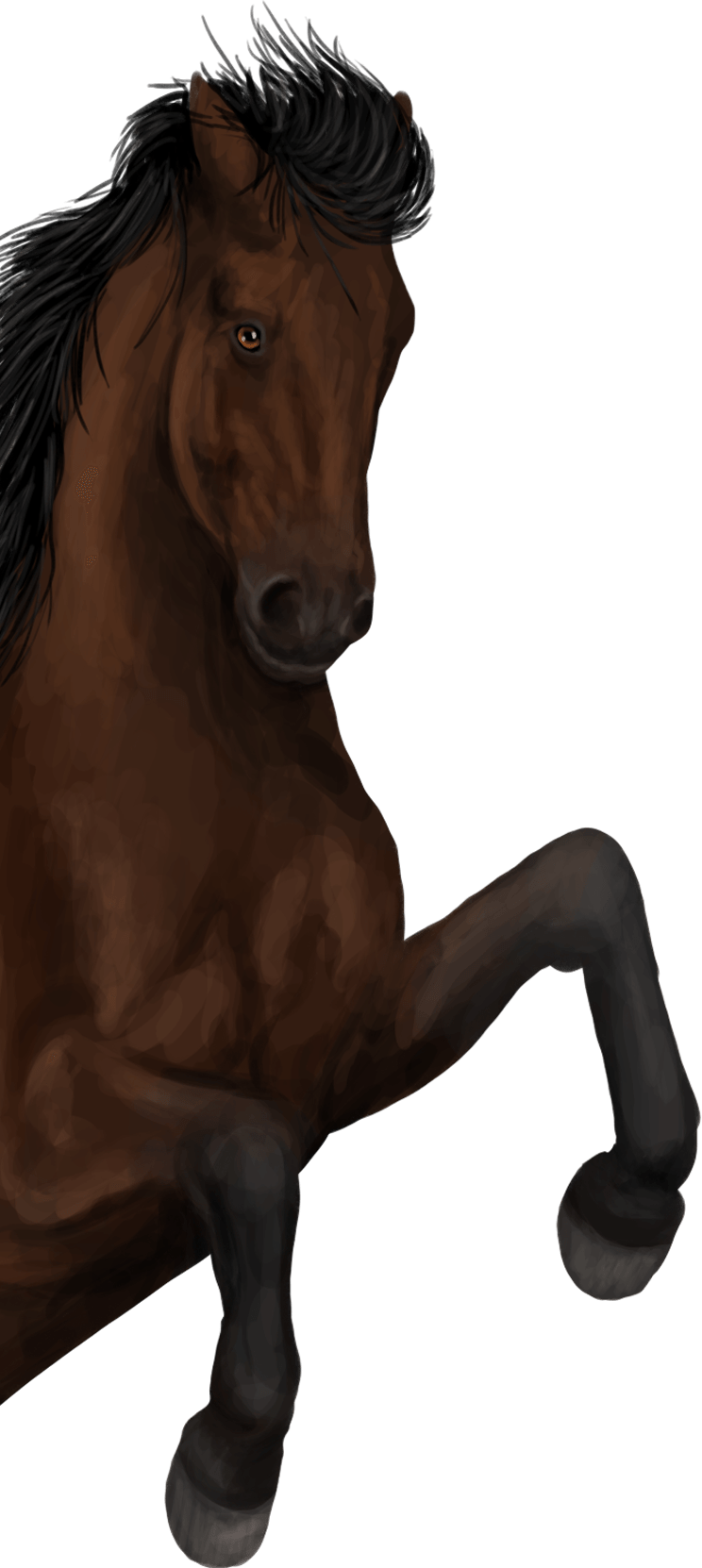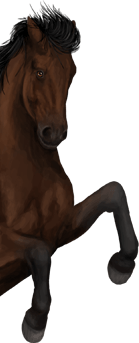This blog post was written by: Luminescence
Hello there! Thanks for stopping by to read this blog. Today, we’re going to explore a formidable figure from Greek mythology. He is the god of the sea, earthquakes, and horses. Armed with his trident and riding a chariot drawn by hippocampi, he reigns over the seven seas… This blog is all about Poseidon!
The Myth of Poseidon
As today’s focus is Poseidon as the god of horses, I’ll be sharing one of his horse-related myths. Of course, there are countless other fascinating stories about this god, so if you’re interested, please ask about them in the comments!
But let’s return to the story! It is set during the early days of Athens, a time when the city was still in search of a deity to act as its protector. There were two gods particularly keen on claiming the city, given its advantageous coastal location. These were Athena, goddess of wisdom, and, of course, Poseidon, whom we’re discussing today. But a dilemma arose: would Athena become the city’s patron, or would Poseidon claim the title?
Poseidon vs Athena
A contest was held to resolve the matter: whichever god could offer the most useful gift to Athens would earn the right to be its protector. Poseidon presented the Athenians with the horse, while Athena offered an olive tree. According to the ancient Greeks, the olive tree was considered a more valuable gift. And so, the city was named Athens. However, from that day forward, horses have roamed freely across Greece!
Alternative versions
A quick
side note: the most widely accepted version of this myth actually tells us that Poseidon created a saltwater spring rather than a horse. Nonetheless, I find this version far more enjoyable for a modern audience - and much better suited for a blog on My Horsez! As for ‘evidence,’ there is some to support this version, though it has never been quite enough to make it the dominant interpretation.
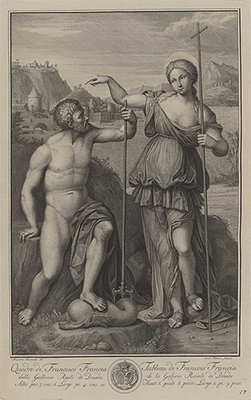 Source: Jacob Folkema, Public Domain, via Wikimedia Commons.
Source: Jacob Folkema, Public Domain, via Wikimedia Commons.
Background Poseidon: not only god of the sea
We’ve just touched on a few myths in which Poseidon takes centre stage, but who exactly is he? You might know him as the brother of Zeus, and Hades, ruler of the underworld. Or perhaps you’re familiar with the origin myth, in which Poseidon was swallowed by his father, Cronus, along with his siblings — the ‘current’ generation of Greek gods. You may also recognise him as the father of a whole host of mythological figures: Theseus, Bellerophon, Percy Jackson, Pegasus, Charybdis, Polyphemus…
But this section wouldn’t be called ‘Background’ if we didn’t delve into Poseidon’s mythological origins. Like the ancient Athenians, we mostly associate him with the sea. However, over five hundred years earlier — during the Mycenaean civilisation (15th to 10th century BCE) — Poseidon was revered as a major god of the earth and the underworld. Part of this role has remained with him, as the bringer of earthquakes, though the underworld domain was eventually passed on to Hades over time.
Art of Poseidon
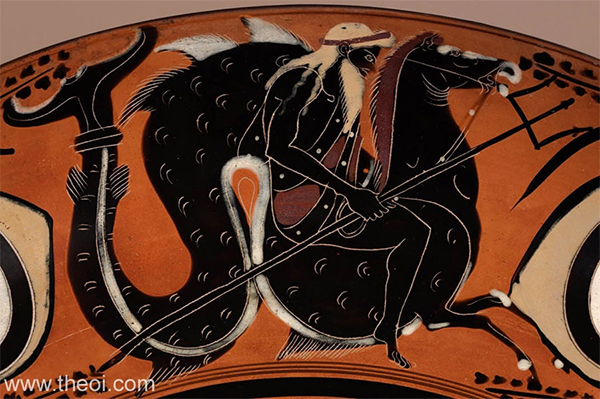 Source: The British Museum @ The British Museum
Source: The British Museum @ The British Museum
This stunning photograph of a figure on a kylix (a drinking cup) most likely depicts Poseidon atop a beautifully rendered hippocampus! Greek vase paintings are always a visual delight (just look at the expressions on both the human and the horse), but this one holds a special charm for me. It’s all thanks to the elegant twist of the creature’s fish-like tail. Although I’m not entirely convinced the composition is perfectly balanced, it is certainly a dynamic and captivating piece!
Modern Day Poseidon
Sadly, compared to figures like Zeus or Hades, Poseidon doesn’t make as many appearances in contemporary popular culture. Perhaps the sea simply isn’t considered as exciting as the underworld or the heavens. Perhaps his myths are less easily adapted to modern narratives. Or perhaps he’s simply not the most likeable character. Nonetheless, I can certainly name a few brilliant portrayals.
First of all, there’s his role in
Percy Jackson and the Olympians. While I wouldn’t call this version faithful to the original myths, the image of Poseidon in a Hawaiian shirt is so charming that I couldn’t resist mentioning it. Secondly,
EPIC: The Musical — a series of albums inspired by the Odyssey — offers, in my opinion, a more accurate but no less thrilling interpretation of Poseidon. The character appears in tracks such as ‘Ruthlessness’ and ‘Get in the Water.’
I hope you’ve enjoyed reading this blog! Did I manage to share something new with you today? Who is your favourite Greek god?
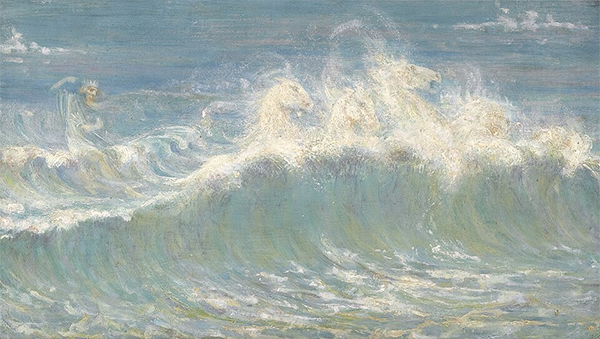 Source: Walter Crane, Public Domain, via Wikimedia Commons.
Source: Walter Crane, Public Domain, via Wikimedia Commons.




 MutedUser
elent03
says:
MutedUser
elent03
says: